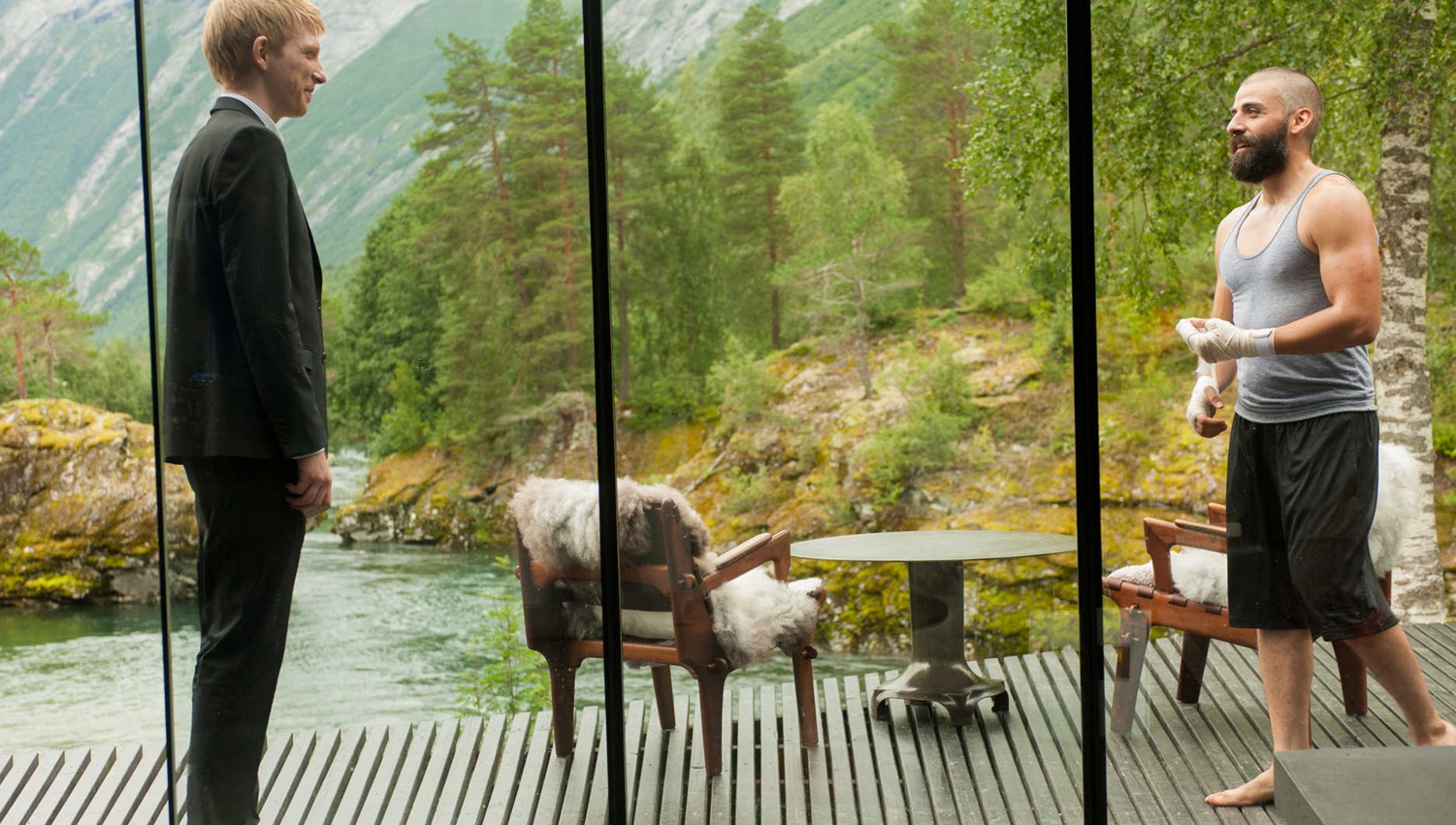From screenwriter of some of the most evocative and challenging scripts like The Beach, 28 Days Later and Never Let Me Go, Alex Garland has finally made the transition from screenwriter to director. The title Ex Machina comes from “Deus ex machina” meaning “god from the machine”, which takes on a more literal meaning in the film. So many artificial intelligence films in the past have explored (and mostly failed in my opinion) to capture that middle ground between the world we know today and the moment when a conscious machine is invented. Garland understands the delicate ingredients for science fiction cinema that doesn’t require so much futuristic illusion. Ex Machina walks that fine line between what we understand in the realm of technology and science with minor sci-fi elements embedded in a story that never seems overreaching.
Caleb (Gleeson) is hand selected by one of the world’s greatest minds to venture to Norway, completely secluded from the outside world to a secret research facility. Nathan (Isaac) the CEO of Bluebook, internets largest search engine, has invited Caleb to test his latest creation. Ava (Vikander) is a fully conscious artificial intelligence who can think, comprehend, joke and according to Nathan even feel pleasure. Caleb is overwhelmed with excitement and the chance to be involved in the experiment. “I want to have a beer, not a seminar”, Nathan responds to Caleb’s many questions. Allowed limited privacy and access to information, roving power failures allow Ava to explain things to Caleb without the eyes and ears of Nathan listening. “Do you have people who test you and might switch you off? Why do I?”
Garland understands the delicate ingredients for science fiction cinema that doesn’t require so much futuristic illusion.
The opening sequence, Caleb traveling by helicopter to a remote part of Norway, has a Jurassic Park feel to it. Garland’s cinematographer Rob Hardy (Tracks, Shadow Dancer) takes full advantage of the scope through the lens. The editing always reminds the viewer of the isolation with the stunning icebergs or the endless rain forests. Inside however Hardy’s work is different, it’s intentionally claustrophobic which provides the viewer with a helpless understanding of the seclusion. The production department’s work plays a very important part in the viewer understanding the leap in technology; It isn’t “if” but “when”, explains Nathan. The carefully calculated script allows the audience to discover things as Caleb does, creating suspicion and suspense at what is really going on here.
Divided into seven sessions with Ava, one each day for the week Caleb is invited to stay, each session provides a deeper understanding of Ava’s artificial intelligence. Having never been outside, never interacted with anyone but Nathan, Ava develops a crush on Caleb and hatred towards her creator. Ex Machina isn’t an action movie and the suspense is calculated and meticulous, it’s uncomfortable as the layers are peeled back. Like Gattaca or Contact before it, Ex Machina feels like a film before it’s time, destined to become a cult classic. All three performances show the investment from the actors to the fascinating concepts and world Garland has created. It’s the artificial intelligence film that finally understands that less is more.
Final Thought
A near perfect science fiction film that understands less is a lot more.

